Contents
Configuration for upgrading the firmware of Omada Gateway (Online)
Configuration for upgrading the firmware of Omada gateway (Manually)
Introduction
The objective of this article is to provide a comprehensive guide on upgrading the firmware of an Omada Gateway in controller mode.
Requirements
- Omada Central / Omada Software / Hardware Controller
- Omada Gateway
Configuration
The following section provides the configuration steps for upgrading the firmware of the Omada Gateway while operating in controller mode.
Step 1. Log in to the controller
If using Cloud-Based controller, Log into Omada cloud portal using TP-Link ID and Password.
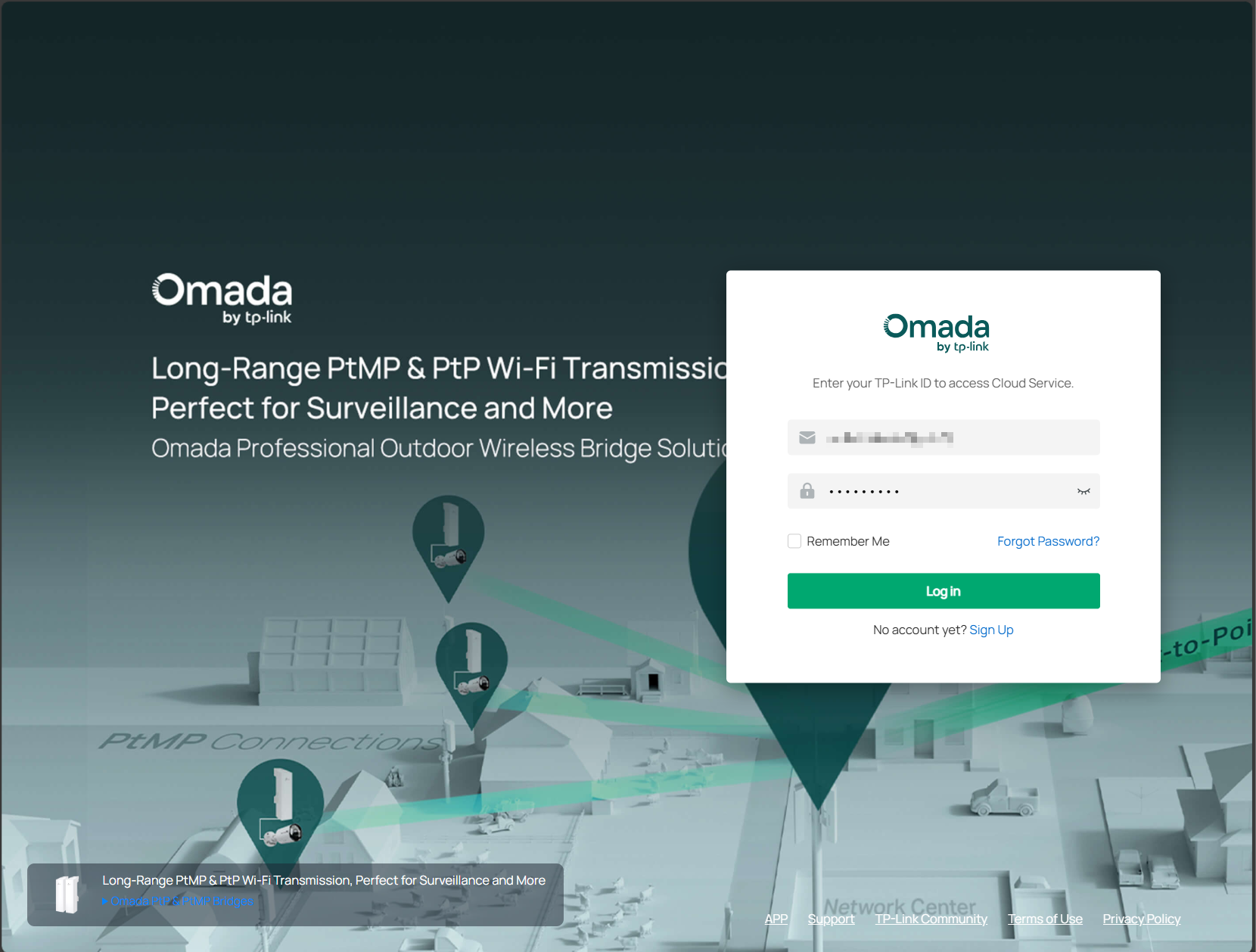
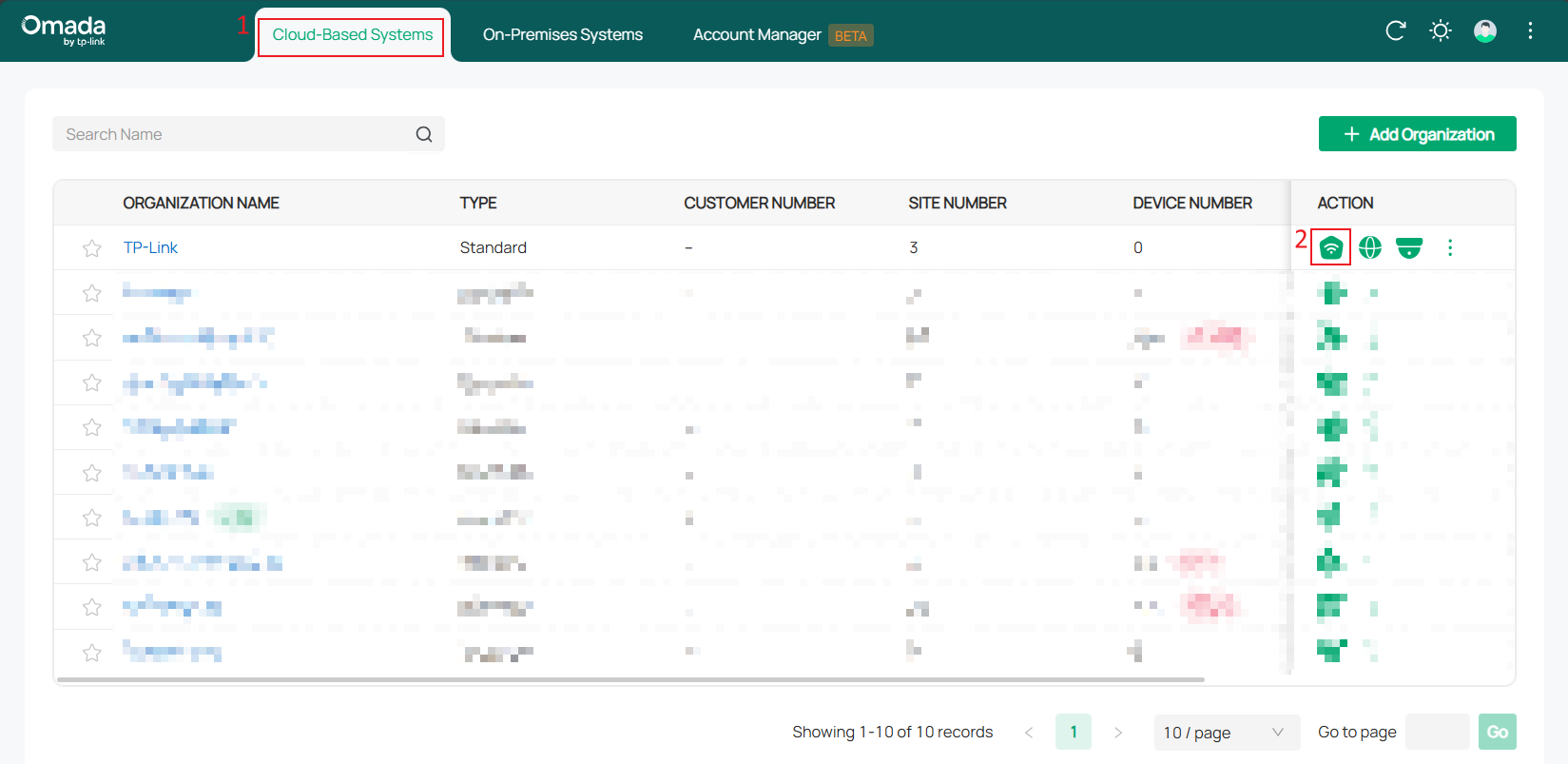
If using Software or Hardware controller, log in to Omada controller using local account/TP-Link ID(cloud access required) by access software or hardware controller’s IP address.
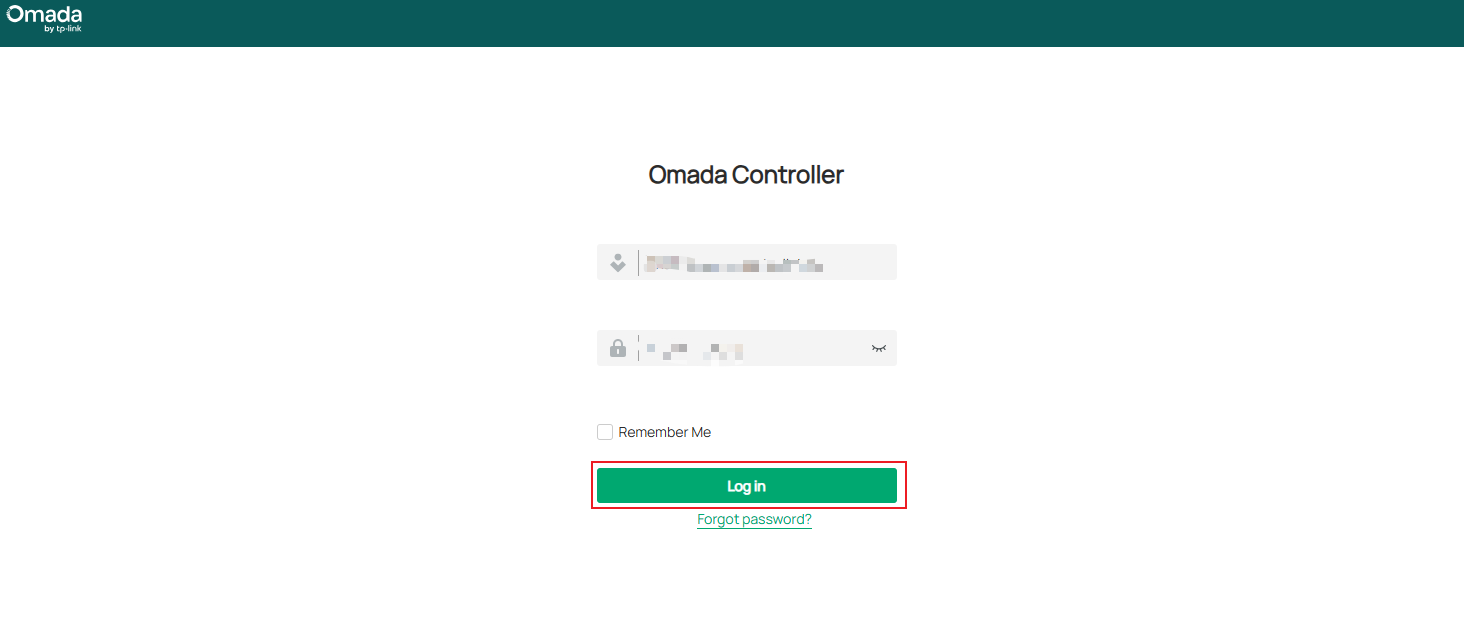
The controller is able to check available upgrade online, and you can also upgrade the latest firmware via controller’s interface.
Configuration for upgrading the firmware of Omada Gateway (Online)
Step 2. Navigate to Site View, Devices, Click on Check for update.
Step 3. Click on upgrade either by selecting the version or the Upgrade button.
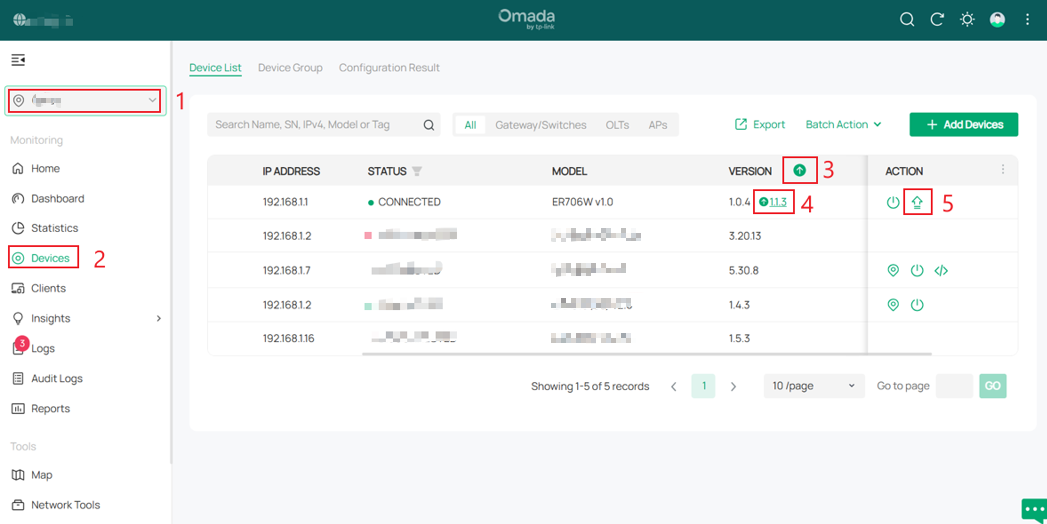
Step 4. Confirm to continue.
Note: Internet connectivity will be temporarily interrupted while the Gateway applies the update and restarts. This may take several minutes.
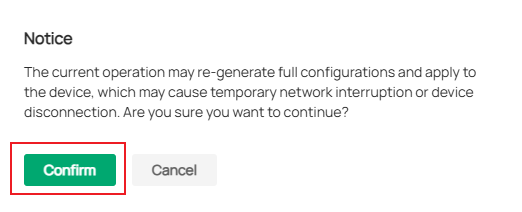
Configuration for upgrading the firmware of Omada gateway (Manually)
Step 2. After Logging into the controller, go to Site View, Devices, click on the Gateway and Config.
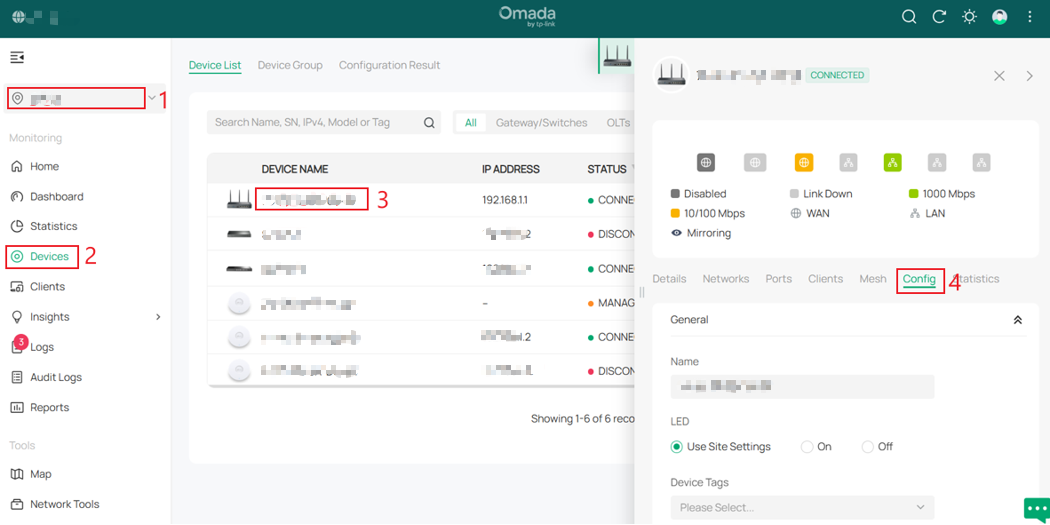
Step 3. Scroll down to Manage Device, under Custom Upgrade, click Browse.
Note: Firmware must already be pre-downloaded. Download from https://support.omadanetworks.com/download/firmware/ and unzip the file. Select the .bin file to start upgrade.
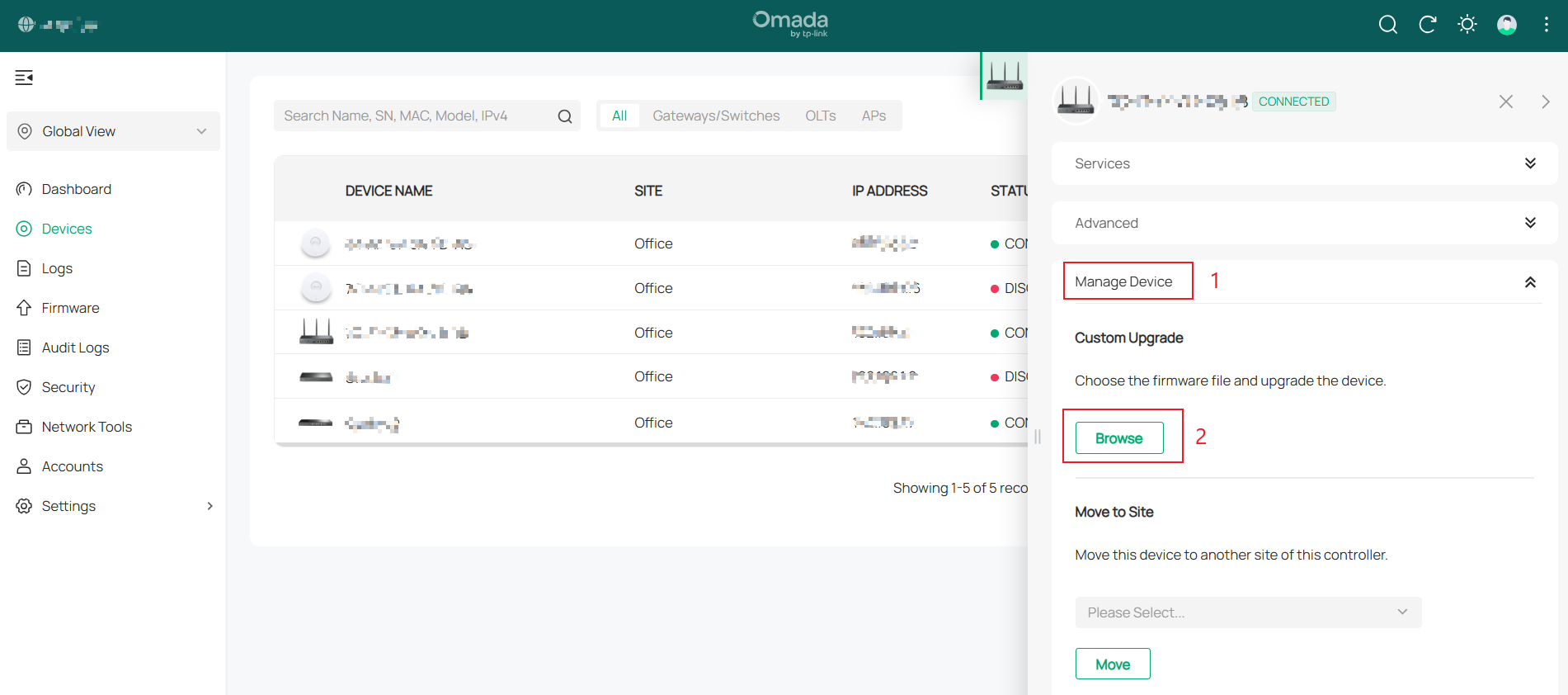
Step 4. Confirm to continue.
Note: Internet connectivity will be temporarily interrupted while the Gateway applies the update and restarts. This may take several minutes.
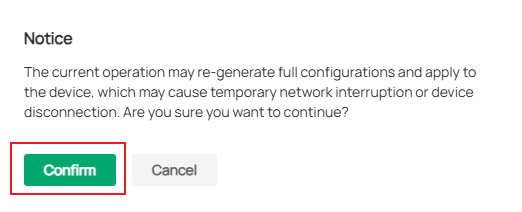
Verification
The new version of the Gateway will be listed within the Devices list.
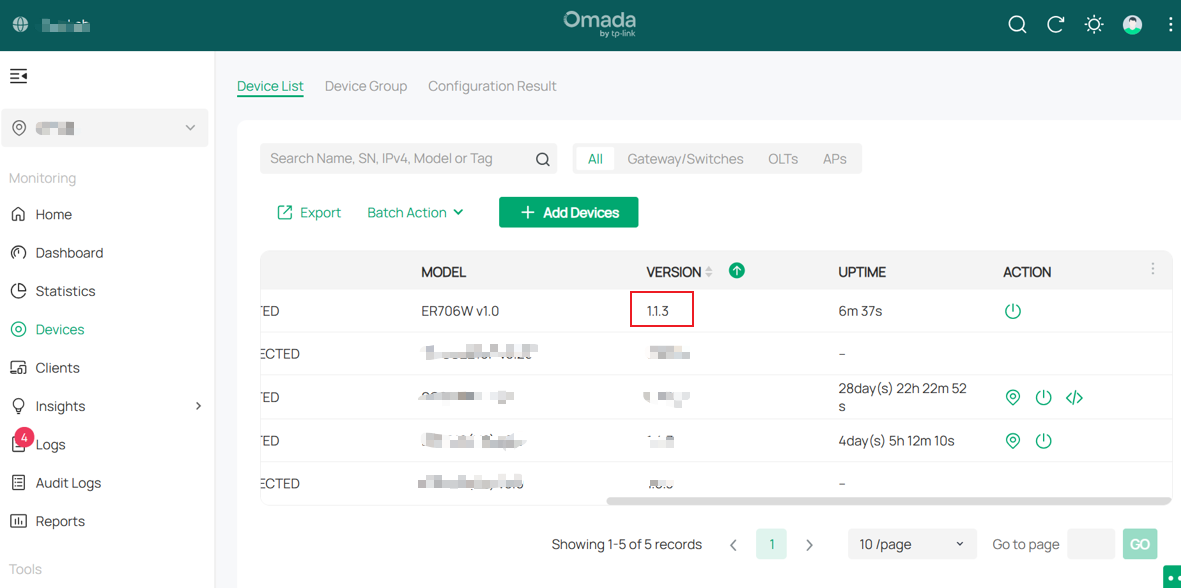
Conclusion
After verification, the Omada Gateway has been successfully upgraded in controller mode.
Get to know more details of each function and configuration please go to Download Center to download the manual of your product.
QA
Q1: What should I do if I see a “Your Connection is not Private” page in my browser?
A1: It is safe to proceed - the warning only means the site does not use a security certificate, not that it is harmful. Click on Show advanced, then Proceed to site.
Q2: How long does the firmware upgrade usually take?
A2: The process generally takes a few minutes. During this time, the Gateway will reboot and internet connectivity will be temporarily interrupted.
Q3: Will upgrading the firmware delete my configuration settings?
A3: No. The configuration is preserved after a firmware upgrade. However, it is always recommended to back up your configuration before performing the upgrade.
Q4: What should I do if the firmware upgrade fails?
A4: If the upgrade fails, reboot the device and try again. If the issue persists, perform a manual upgrade by downloading the firmware file from the TP-Link Support site and using the Custom Upgrade option.
Q5: Do I need internet access to upgrade the firmware?
A5: Yes, internet access is required for automatic upgrades through Omada Central, Software Controller, or Hardware Controller. For manual upgrades, you only need internet access to download the firmware file in advance.
Q6: How can I check the current firmware version on my Gateway?
A6: Log into the controller, go to Site View > Devices, select your Gateway, and check the firmware version listed under device details.
Q7: What happens to connected clients during the firmware upgrade?
A7: All internet traffic will be interrupted while the Gateway reboots. Once the upgrade completes and the Gateway restarts, clients will automatically reconnect.
Q8: Where can I download the latest firmware for my device?
A8: You can always download the latest firmware from the official TP-Link Omada Support website: https://support.omadanetworks.com/download/firmware/








